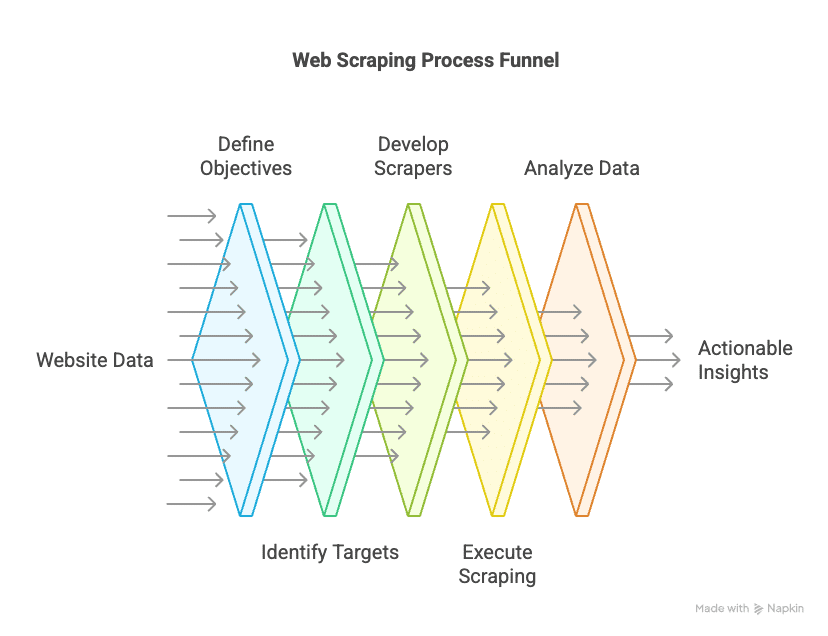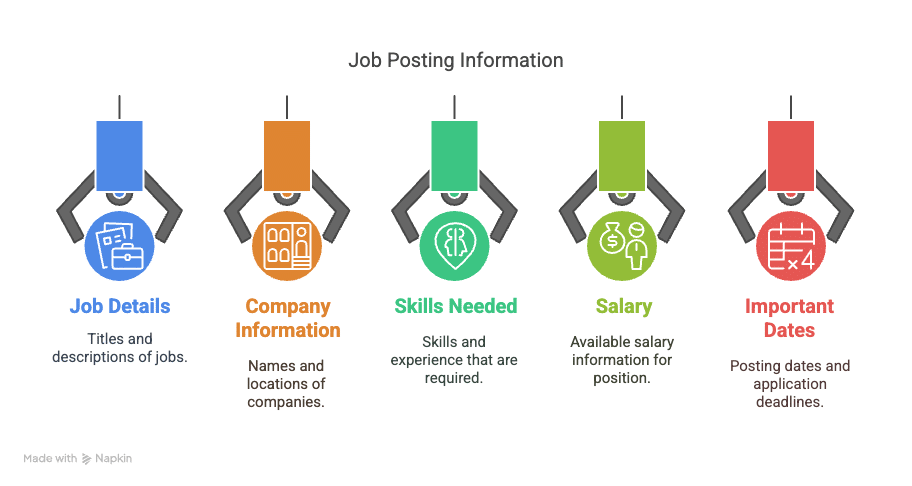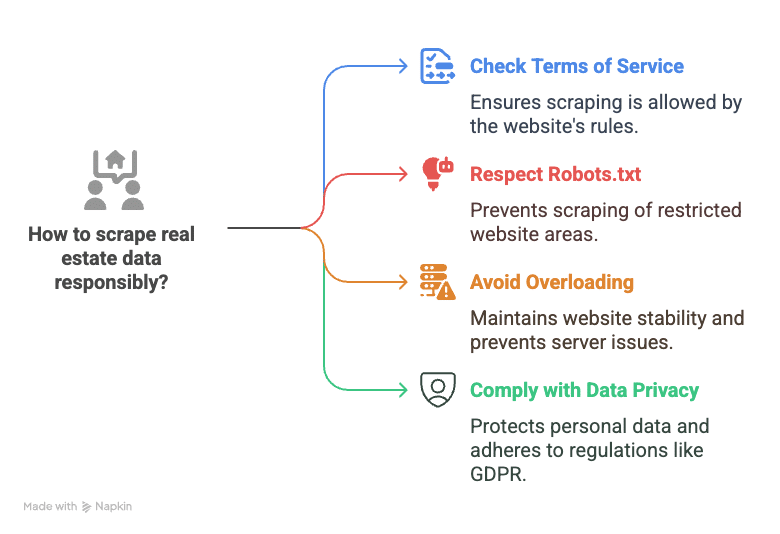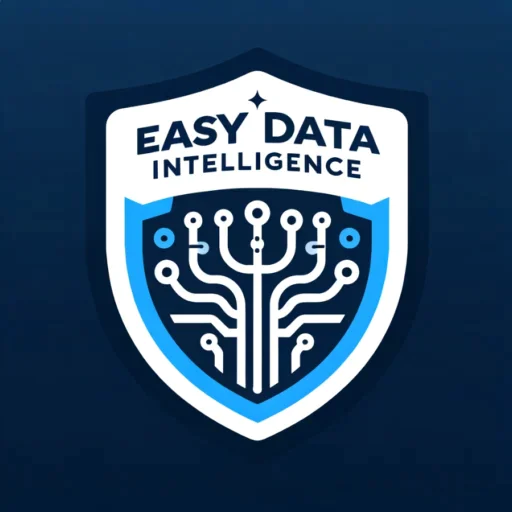Introduction: Why Web Scraping Online Jobs is Important for Recruitment
The process of manually collecting job listings from online platforms can be time-consuming and inefficient. With the growth of online job boards and job aggregators, web scraping online jobs has become a powerful tool for automating the collection of job listings. By using automated web scraping tools, businesses and recruitment agencies can efficiently gather job data, analyze market trends, and streamline their recruitment strategies. In this article, we will explore how web scraping online jobs can help businesses optimize their recruitment process and gain valuable insights from the job market.
- Introduction: Why Web Scraping Online Jobs is Important for Recruitment
- What is Web Scraping Online Jobs?
- Key Benefits of Web Scraping Online Jobs
- How to Scrape Online Job Listings Effectively
- Legal and Ethical Considerations in Web Scraping Online Jobs
- Conclusion: Optimizing Recruitment with Web Scraping Online Jobs
What is Web Scraping Online Jobs?
Web scraping online jobs refers to the process of using automated tools to extract job listings and related information from job boards, recruitment platforms, and company career pages. This data can include job titles, descriptions, company names, required skills, salary ranges, and location information. By scraping job listings from multiple sources, businesses and recruiters can create centralized databases of job opportunities and analyze trends in the job market.
Web scraping tools can automate the data collection process, allowing businesses to gather large amounts of job data quickly and efficiently. This not only saves time but also provides up-to-date insights into the job market.

Key Benefits of Web Scraping Online Jobs
-
Automated Job Data Collection
One of the biggest benefits of web scraping online jobs is the automation of the data collection process. Instead of manually browsing job boards and career sites, web scraping tools can automatically gather job listings and related data in real-time. This ensures that you always have access to the most current job opportunities without needing to spend time searching for them. -
Efficient Recruitment Strategy
For recruitment agencies and businesses, scraping job listings from various online platforms helps streamline the recruitment process. By collecting data from multiple job boards, recruitment websites, and company pages, recruiters can identify trends, track the most common job openings, and focus their efforts on high-demand roles. This enables them to optimize their recruitment strategy and find the best candidates faster. -
Market Trend Analysis
Web scraping online jobs provides valuable insights into trends in the job market. By scraping job listings over time, businesses can track the demand for specific skills, industries, and roles. For example, if the data shows a rise in job postings for data science or software engineering positions, businesses can adjust their hiring strategies accordingly and prioritize those skill sets. This data-driven approach helps businesses stay ahead of market trends and adjust their recruitment strategies in real-time. -
Lead Generation for Job Placement
Web scraping can also be used for lead generation in recruitment. By scraping job listings and identifying companies that are actively hiring, recruitment agencies can create a list of leads for outreach. This makes it easier to find new clients and candidates, increasing business opportunities and enhancing the placement process. -
Salary and Compensation Analysis
Web scraping job listings can also help businesses analyze salary ranges and compensation trends in the job market. By collecting salary data from job boards and job postings, businesses can benchmark their compensation packages against industry standards and ensure they are offering competitive salaries. This can help improve employee retention and attract top talent.
How to Scrape Online Job Listings Effectively
To effectively scrape online job listings, follow these steps:
1. Choose the Right Web Scraping Tool
There are several web scraping tools that can help automate the collection of job listings. Some popular tools include:
- Scrapy: An open-source Python framework for large-scale web scraping projects.
- BeautifulSoup: A Python library for parsing HTML and extracting job data.
- Octoparse: A no-code scraping tool that’s great for beginners and can scrape dynamic websites.
- ParseHub: A visual scraping tool that is ideal for extracting data from job boards and websites with complex structures.
2. Identify the Data You Need to Scrape
Before you begin scraping, determine which data points you want to collect. For job listings, this might include:
- Job titles and descriptions
- Company names and locations
- Required skills and experience
- Salary information (if available)
- Job posting dates and application deadlines
Having a clear understanding of the data you need ensures that you only collect relevant information.

3. Set Up Scraping Parameters
Once you’ve chosen a scraping tool and defined your data points, configure the tool to scrape the desired websites. Key parameters to set up include:
- Frequency: How often you want to collect job listings (e.g., daily, weekly).
- Target websites: Specify the job boards, company career pages, and job aggregators you want to scrape.
- Output format: Choose how you want the data to be saved (e.g., CSV, Excel, or database).
4. Run the Scraper
After setting up the scraping tool, run the scraper to begin collecting job listings. Some tools allow you to schedule scraping tasks, so they run automatically at specified intervals. Make sure to monitor the process to ensure that it’s collecting the correct data.
5. Clean and Analyze the Data
Once the job listings are scraped, clean and organize the data for analysis. This might involve removing duplicates, standardizing job titles, or categorizing job data by industry or location. Tools like Excel or Google Sheets can be used to organize and analyze the data, while more advanced platforms like business intelligence tools can help with in-depth analysis.
Legal and Ethical Considerations in Web Scraping Online Jobs
While web scraping online jobs can provide valuable insights, it’s essential to follow legal and ethical guidelines:
- Check Website Terms of Service: Always review the terms of service for the websites you plan to scrape. Some websites may prohibit scraping, and violating their terms could result in legal issues.
- Respect Robots.txt: Websites often use robots.txt files to specify which parts of their site can be scraped. Ensure you are compliant with these guidelines.
- Data Privacy: Ensure compliance with data privacy laws, such as GDPR, when scraping personal information from websites.

Conclusion: Optimizing Recruitment with Web Scraping Online Jobs
Web scraping online jobs is a powerful tool that can help businesses and recruiters streamline their recruitment process, monitor job market trends, and enhance their hiring strategies. By automating the collection of job data, businesses can save time, improve efficiency, and make data-driven decisions. Whether you’re tracking salary trends, analyzing job demand, or generating leads, web scraping is an essential tool for the recruitment industry.
For more information on how Easy Data can help with your web scraping needs, visit EasyData.io.vn.
External Links


Leave a Reply